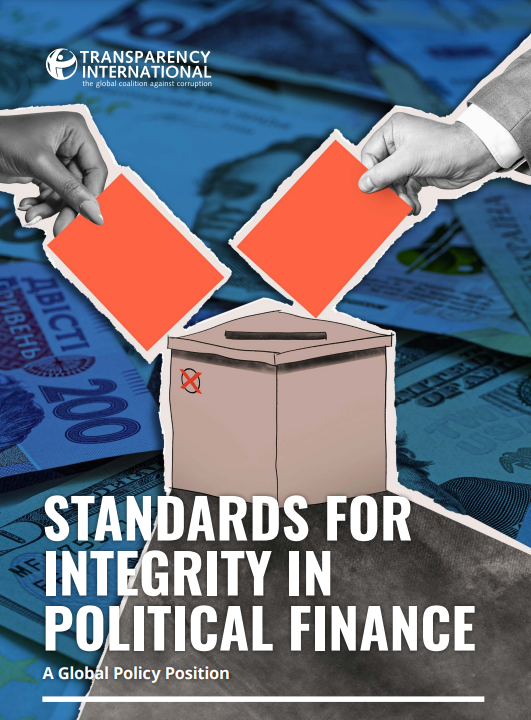
Transparency International issued a wide-ranging set of policy recommendations that will, if applied, provide an effective bulwark against corruption arising due to money mixed with politics around the world.
Global expert assessments show that many countries are lagging far behind when it comes to introducing and enforcing robust legislation to prevent corruption via political finance. More than 60 countries still allow anonymous political donations and almost as many fail to require political parties to report on their campaign income and spending. These and other loopholes and weaknesses in legal frameworks create opportunities for corrupt actors to use politics for their own self-interest or unlawful purposes.
Transparency International’s recently published Standards for Integrity in Political Finance is based on extensive consultation with the global anti-corruption movement’s national chapters as well as experts from governments, international organisations, election observers, civil society, media and think tanks.
The new policy position from Transparency International as set out in the said publication outlines over 50 actionable recommendations that together address the key corruption risks in how political parties and campaigns are financed. Recommendations include:
- Requirements for rigorous bookkeeping, reporting and publication standards for political income and expenditure, with parties, campaigns and candidates required to use transparent and publicly accessible bank accounts to manage their funds.
- Banks should be required to monitor and report suspicious activity on these accounts to oversight bodies, which should be equipped and empowered to monitor political finances and cooperate with other agencies to pursue accountability for violations.
- Governments to update regulations to bring greater transparency to online advertising, ban anonymous donations and restrict foreign payments to political entities.
- Scrutiny of public financing to help level the playing field for marginalised groups in politics, particularly women.
Malaysia is committed to transparency in political finance by joining and ratifying United Nations Convention against Corruption (UNCAC) in 2008. It has been 14 years since TI-Malaysia published its research and made its recommendation to the government through its memorandum on “Reforming Political Financing in Malaysia.” However, all the past governments failed to table the Political Financing Bill in Parliament. It is hoped that this Madani government will finally be able to win support from law makers and bring this endeavour to reality taking useful guidance from this new publication, said TI-Malaysia president Muhammad Mohan.
End
Link to the Report: Standards for Integrity in Political Finance
Note to Editors: For clarification on any and all official statements from Transparency International – Malaysia (TI-M), kindly refer to its President, Dr Muhammad Mohan (mmohan@transparency.org.my)







